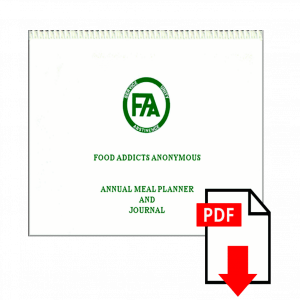

But others might find the symptoms so common they are not even recognizable as withdrawal. Even problematic eating is seen as better than feeling bereft to the point of suicidal thoughts. It may seem that life without one's comfort foods is simply not worth living. Though abstaining from foods is a contentious subject in the scientific literature, there is no question that it will cause a level of discomfort that often drives addicts back to eating.įeelings of deprivation, obsessions about food, and anxiety arising from unresolved trauma that was being 'medicated' by the addictive foods may appear like spectres that linger, worsening before they get better. “Withdrawal occurs once a person stops eating any addictive food. The underlying emotional trauma that drives the bulimic to stuff himself needs to be addressed first before the physical aspects of obesity can be seriously addressed likewise, the sugar that is propelling the addictive overeater needs to be removed first before tackling any weight issues.”įood Junkies: The Truth About Food Addiction In their cases, obesity is just another symptom of their emotional disturbance or their food addiction.
FOOD ADDICTS ANONYMOUS LITERATURE HOW TO
They can regulate their obesity by learning how to change the circumstances that foster poor willpower: better sleep, stress management, improving social skills, and changing a toxic good environment are only a few of the modifications that can be made.Ĭertainly, people suffering from eating disorders and food addiction can also be obese, but their primary condition is not obesity. Normal eaters represent a large proportion of the obese. Obesity is entirely a physical problem: a result of eating too many calories while expending too few. We can categorize the corresponding behaviours of these conditions as problems that occur within the normal eating, emotional eating, and food addiction spectrums. “Obesity, eating disorders, and chemical dependency on food are three distinct and very different diseases - and demonstrate different behaviors around food. Obesity is suicide on lay-away: It has plenty of time to degrade quality of life before finally ending life prematurely.” The consequences of obesity (the chief consequence of food addiction) constitute the fastest-growing, and soon the gravest, threat to public health.

The medical profession and the public at large don't see that they are equivalent. To some, the flaw of those comparisons will be their being equated with food addiction, and that is the rub, entirely. Then again, who gets excited about any serious treatment prescription? Certainly not the cancer patient told she'll have to undergo radiation, or the back patient ordered to a month's uninterrupted bed rest, or the lung patient told he'll need a double transplant. Lots of eaters are going to balk at abstaining, but to learn that recovery is going to require rigorous honesty, or more attention to spirit, could be far more off-putting. “One's prescription can seem extensive-even overwhelming, depending on an individual's circumstance-and I can imagine the prospects exciting few people of any stripe. The problem is, if we had any clue about wholesome discipline, we wouldn't be addicts.” I'm saying that food addicts, unlike alcoholics and may others, have both to try for perfection and to accept that perfection is unattainable, and that the only tool left is a wholesome discipline. But the comfort of all or nothing is just out of reach. Having a food plan is an attempt to address that, and having clear boundaries is a key to its working.

Eaters don't just have to try it they must practice it to survive. I've read that some drinkers have tried "controlled drinking," and it hasn't been very successful. How's that going to work for an addicted eater? Food addicts have to take the tiger out of the cage three times a day. But an addict who finds the willingness can then rely on the same trait to stay clean: "Just don't drink," they say in AA. “Black-and-white thinking is the addict's mentality, which can be a bar to recovery when one is still active.


 0 kommentar(er)
0 kommentar(er)
